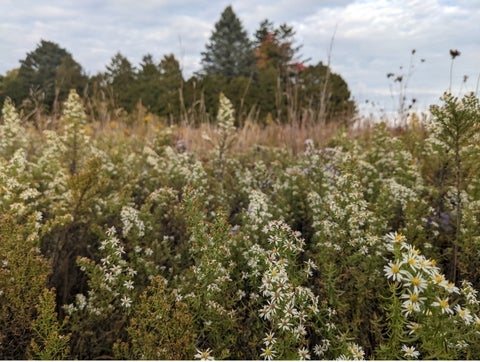Building resilient food systems with biodiversity
COP28 shed light on food systems and the intricate connection they have to biodiversity and climate.
By Amy Hall

Experts from around the world highlighted a need to urgently transform our agri-food systems to mitigate and adapt to inevitable impacts of climate change at COP 28 the global climate change proceedings that took place in December in Dubai. Dr. Qu Dongyu from the Food and Agriculture Organization of the United Nations signaled a turning point for COP where “agri-food systems are taking center stage” and noted this discussion is vital to “achieving the 2030 and Sustainable Develop Goals.”
There is currently a need for intervention as food systems are contributing substantially to global greenhouse gas (GHG) emissions, impacting biodiversity, and degrading soil health. Mr. Stefan Schmitz, Executive Director of the Global Crop Diversity Trust shared that "plant diversity is at the heart of food systems transformation” and is “key to climate adaptation and reduction of GHG emissions."
One intervention, regenerative agriculture, was front and centre in the discussions about a transition to sustainable agri-food systems. Some defined the concept as a holistic approach to food production that focuses on environmental and soil health, sequestering carbon, and attempting to grow more food with fewer resources. Amy Brachio, Global Vice Chair of Sustainability at EY noted that "regenerative farming practices that restore soil health bring us back to traditional practices." This discussion signals a path forward inspired by the past and by current practices taking place across the world, on a local scale. Other experts at COP 28 noted the need for substantial investment in regenerative agriculture to see the sustainable, biodiversity-focused, transition and for farmers to benefit from these changes first. The current cost of food paid by consumers at the grocery store does not factor in the environmental cost of producing this food to communities. But it is hoped that through investment in regenerative food systems, we can begin to restore the environment and communities while feeding more people.

Eastern Giant Swallowtail on Rough Blazing Star flower; source: Amy Hall
With improved technology and innovation, and better integration of Indigenous Knowledge and traditional practices, we can begin to transform to food systems that not only adapt to climate change impacts but attempt to mitigate them. However, quick action for sustainable food systems is integral as noted by Mr. Jorge Daniel Taillant, Executive Director, Commission for Environmental Cooperation, who made a call to action urging “every person in our global society to use whatever means and resources at their disposal to aggressively tackle the triple planetary crisis of climate change, pollution, and biodiversity loss.”
A muti-sector, diverse approach will be vital to achieving these outcomes. Diverse knowledge systems, local agricultural practices, environmental stewardship, and sustainable finance will all be key to transforming food systems on a global scale.
“May this be a decade of ambition and aggressive collective action. Solutions are within our reach; we simply need to implement them."

Native plants, Asters in an agricultural setting; source: Amy Hall